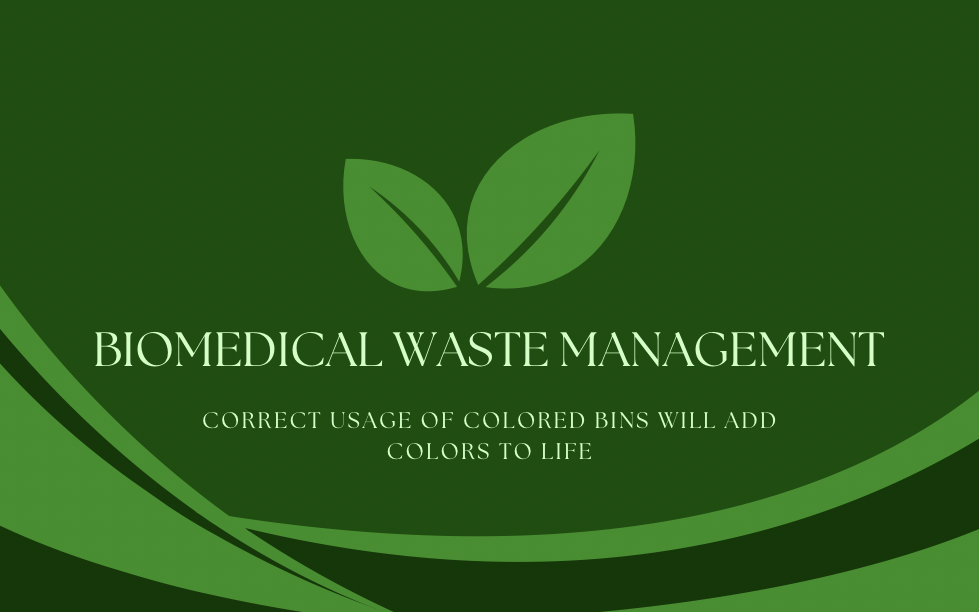Biomedical Waste Management
Biomedical waste management involves the proper handling, treatment, and disposal of waste generated from healthcare facilities. This type of waste includes materials like used syringes, bandages, biological samples, pharmaceuticals, and other potentially infectious or hazardous substances. Effective management is crucial to protect healthcare workers, patients, and the environment.

Key Components of Biomedical Waste Management:
- Segregation: Proper segregation of waste at the point of generation is essential. Different types of waste should be placed in designated containers (e.g., sharps containers for needles, red bags for infectious waste).
- Collection and Storage: Collected waste must be stored in a secure area to prevent accidental exposure. It should be labeled appropriately and stored for a limited time to avoid accumulation.
- Transportation: Waste should be transported in covered vehicles specifically designed for biomedical waste. The transport should comply with local regulations to ensure safety.
- Treatment and Disposal: There are several methods for treating biomedical waste:
- Autoclaving: Uses steam and pressure to sterilize waste.
- Incineration: Burns waste at high temperatures to reduce it to ash.
- Chemical Disinfection: Uses chemicals to disinfect waste.
- Microwave Treatment: Uses microwaves to destroy microorganisms.
- Land Disposal: Used for treated waste, ensuring it doesn't contaminate the environment.
- Training and Education: Healthcare workers should be trained in proper waste handling procedures to ensure safety and compliance with regulations.
- Regulatory Compliance: Facilities must adhere to local, national, and international regulations regarding biomedical waste management. This includes proper documentation and reporting.
Importance of Biomedical Waste Management:
- Infection Control: Proper management reduces the risk of infections spreading within healthcare facilities and the community.
- Environmental Protection: It prevents hazardous substances from contaminating the environment.
- Legal and Ethical Responsibility: Compliance with regulations ensures that healthcare facilities meet legal requirements and ethical standards.
- Worker Safety: Protects healthcare workers from potential hazards associated with biomedical waste.
Challenges and Solutions:
- Lack of Awareness: Continuous education and training programs can help increase awareness among healthcare workers.
- Infrastructure Deficits: Investing in proper infrastructure and technologies for waste management is crucial.
- Regulatory Enforcement: Strengthening regulations and their enforcement can improve compliance.
Effective biomedical waste management is critical for public health and environmental sustainability, requiring a coordinated effort from healthcare facilities, regulatory bodies, and the community.


